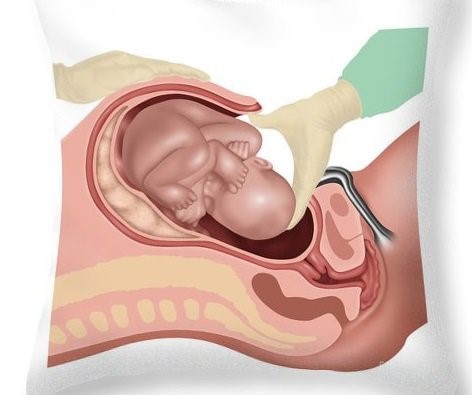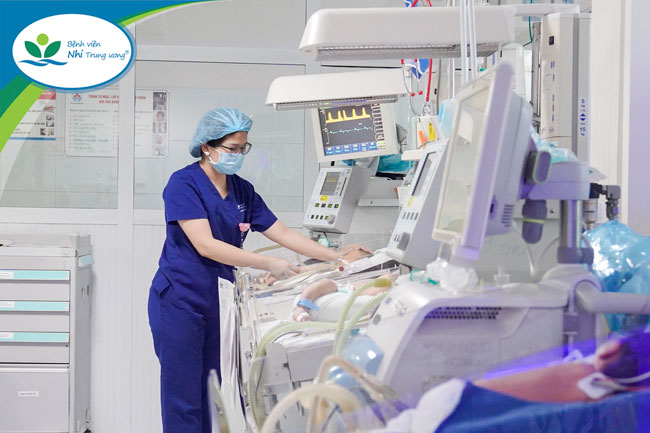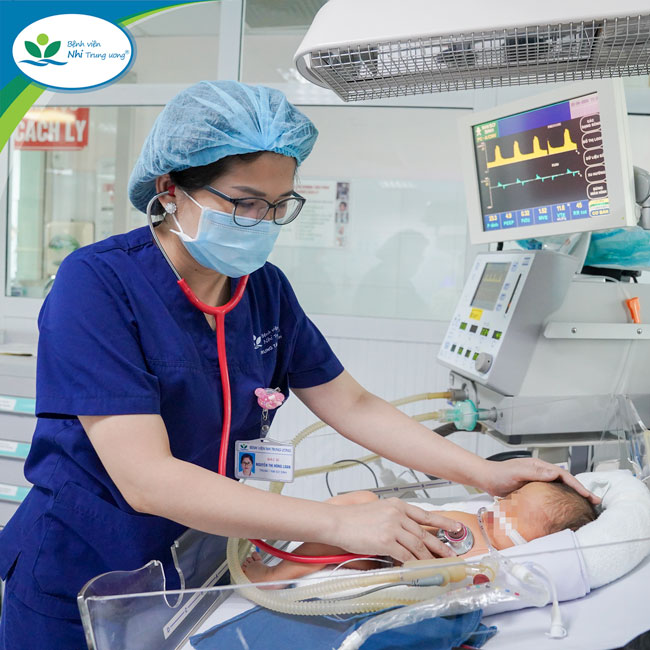In just under a week, the Neonatal Care Center at the Vietnam National Children’s Hospital has admitted 6 actively delivered newborns experiencing severe complications, requiring mechanical ventilation, maintenance of heart support medications, and circulatory support. Notably, 2 cases resulted in severe lung damage, respiratory failure, and circulatory failure.
In reality, natural vaginal delivery is the physiological and best method for both mothers and infants. Surgical delivery should only be performed when there are maternal or fetal complications preventing a vaginal birth. However, in recent years, the trend of elective cesarean sections without labor has become increasingly popular due to choosing auspicious birth dates.

Elective cesarean sections without labor pose significant risks for newborns, increasing the likelihood of respiratory distress syndrome.
The global rate of elective cesarean sections has been rapidly increasing in the last 20 years, especially in developing countries. In the U.S., the rate was 21% in 1996 and rose to 32.24% in 2014. Rates in Paraguay and Ecuador are 42% and 40%, respectively. In Vietnam, the rate remains high at about 39.1%. The World Health Organization (WHO) recommended a rate of 5-10% in 1985 to avoid complications for both mothers and babies.
Newborns delivered through elective cesarean sections may face respiratory distress at varying levels, from mild breathing difficulties to severe respiratory failure requiring mechanical ventilation or even extracorporeal membrane oxygenation (ECMO). Some severe cases may result in death. Studies have shown that elective cesarean sections without labor increase the risk of respiratory distress syndrome in newborns by 2.6 times compared to cesarean sections with labor and 1.9 times compared to vaginal delivery.

During the fetal period, the lungs are filled with fluid, and gas exchange depends on the placenta. When placental function ceases, the lungs take over. In normal deliveries, the continuous contractions of the uterus affect the gas exchange process, reducing oxygen to the fetus. This prompts the lungs to start functioning. In newborns delivered through elective cesarean sections, this process is bypassed, resulting in increased fluid in the lungs and potential respiratory issues after birth.
Parents often mistakenly believe that elective cesarean sections are safer than natural deliveries, putting their babies at risk of various postnatal dangers.
The first case involves a one-day-old boy, D.T.D., from Thai Binh, the second child in the family. Due to concerns about complications from the previous cesarean section, the family opted for an elective cesarean section at 37 weeks. After birth, the baby required continuous positive airway pressure (CPAP) for breathing support. However, respiratory distress worsened, leading to the baby being transferred to the Neonatal Care Center at the Vietnam National Children’s Hospital. The baby arrived with severe lung damage and circulatory failure. Fortunately, after 7 days of treatment, D.T.D.’s condition improved and stabilized.

The second case involves an unlucky one-day-old boy in Nam Dinh, born through an elective cesarean section at 36 weeks due to family anxiety. The baby, after birth, suffered severe respiratory distress, high pulmonary pressure, and was transferred to the Neonatal Care Center at the Vietnam National Children’s Hospital in a cyanotic state with an oxygen saturation of 50%. Despite aggressive treatment, the baby did not improve and succumbed after 3 days.
To prevent potential complications from elective cesarean sections, parents should avoid choosing this delivery method without medical necessity. Discuss concerns with Obstetricians for support and preparation for a safe and optimal birthing process.
Dr. Nguyen Thi Hong Loan – Neonatal Intensive Care Unit, Neonatal Care Center
Tra My – Electronic Information Department
Photo: Le Hieu



